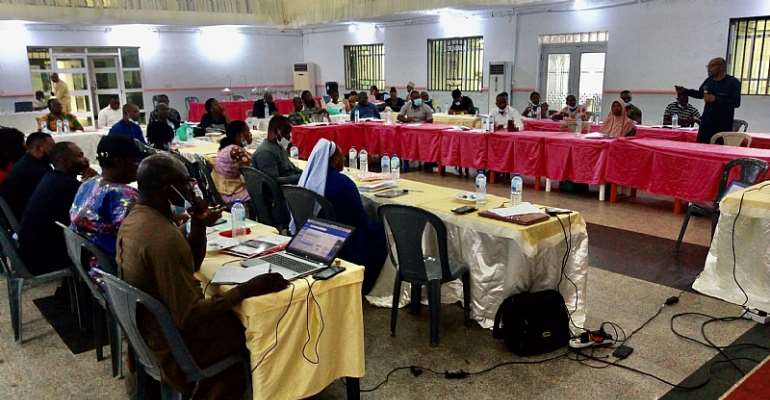Public Procurement: CSOs Urged To Monitor Processes As S2s, Csj Organise Training

Civil Society/Non-governmental Organisations in Ebonyi State have been encouraged to form coalitions to observe and monitor public procurement processes.
The encouragement came at the end of a 3-day capacity building workshop for selected organisations operating in the State.
The event held at the Osborne La palm hotel, Abakaliki, from November 23rd to 25th, was organised by the USAID-funded Nigeria State Accountability, Transparency, and Effectiveness (State2State) Project in collaboration with the Centre for Social Justice.
The Citizen Engagement and Capacity Building Specialist for State2State, Ebonyi State, Ibiam Azu Agwu, in his concluding remarks highlighted the importance of CSOs in advancing public good, and called on them to work in unity so as to actualise their engagement objectives.
Azu further admonished the group to acquire more knowledge of the provisions of the State's procurement laws and processes to equip themselves with relevant information with which to engage the government.
Introducing the main subject matter of the workshop earlier, the Executive Director, Centre for Social Justice, Eze Onyekwere, explained that public procurement was an integral part of budgeting process for the realization of government policies and objectives.
He identified lack of value for money, lack of fitness of purpose in procurement and excess input over output in management of public funds as some of the mischiefs that leads to procurement reforms.
He added that procurement reforms was aimed, among other things, at upholding the supremacy of the Constitution, enhancing democracy and development as well as fighting corruption.
Onyekwere further explained that the regulatory and technical arm of public procurement in Nigeria is the Bureau of Public Procurement while the Public procurement Act stipulates acceptable processes of public procurement and punishments for offenders.
Other resource persons at the event including the Program Officer of the Centre Fidelis Onyejegbu and Martins Eke, took turns to further drill participants on procurement methods, procurement Observation and monitoring; Gender inclusive procurement process, Open Contracting, as well as Code of Conduct and offenses.
Representatives of NGOs/CSOs at the workshop suggested bringing together of local contractors, government agencies with the CSOs in such capacity building workshops.
That, according to them, would enhance mutual understanding and respect for the roles of the NGOs/CSOs often erroneously perceived as antagonistic to government.
Highlight of the workshop were group assignments and presentations which added further insight into the workshop topics.
Participants attention were also drawn to the Ebonyi State Public Procurement and Related Matters law, 009 of 2020.
The NGOs/CSOs also drew a work plan to be followed in achieving the aims of the workshop, including stepping down the training to their various organisations, advocacy visits to concerned authorities as well as projects monitoring.
